Trojan Horse play aims to crack 'assumed truth'
- Published
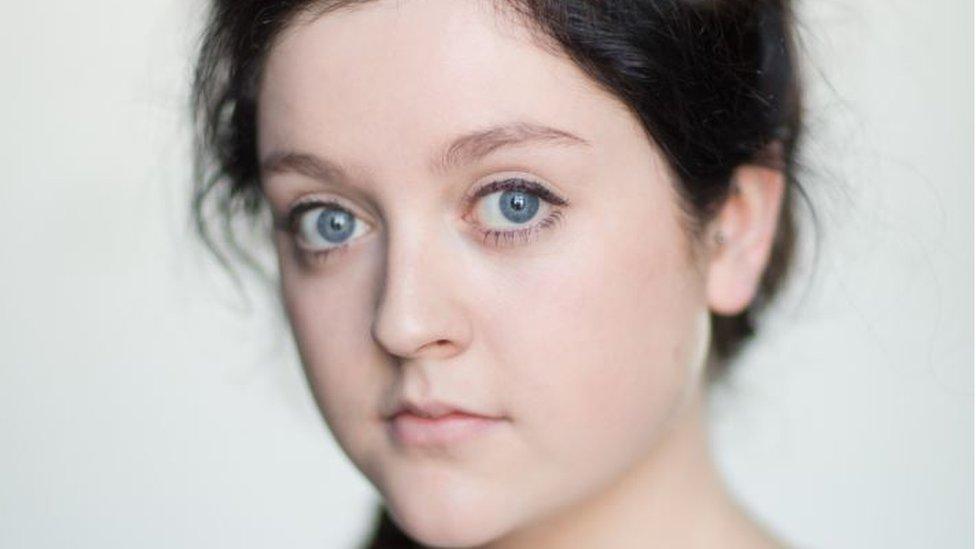
Helen Monks said the Trojan Horse play "needs to come to Birmingham because that's its home".
The Trojan Horse inquiry into an alleged Islamist plot to run schools has left deep scars on the Birmingham communities involved, a writer says.
Helen Monks, 25, from the city's Kings Heath, wrote Trojan Horse with Matt Woodhead after interviewing about 90 people over more than two years.
"We found a lot of people were still really hurt and emotional about what happened," she said.
Monks hopes the play can cut through an "assumed truth" about the case.
Several schools in the city were investigated following claims of a Muslim hardliners' plot to control them.
"There was already a culture of fear around Muslim people and this increased divisions," the writer said of the inquiry.
The play, which focuses on five main characters, uses direct quotes from pupils, teachers, governors, politicians and parents affected.
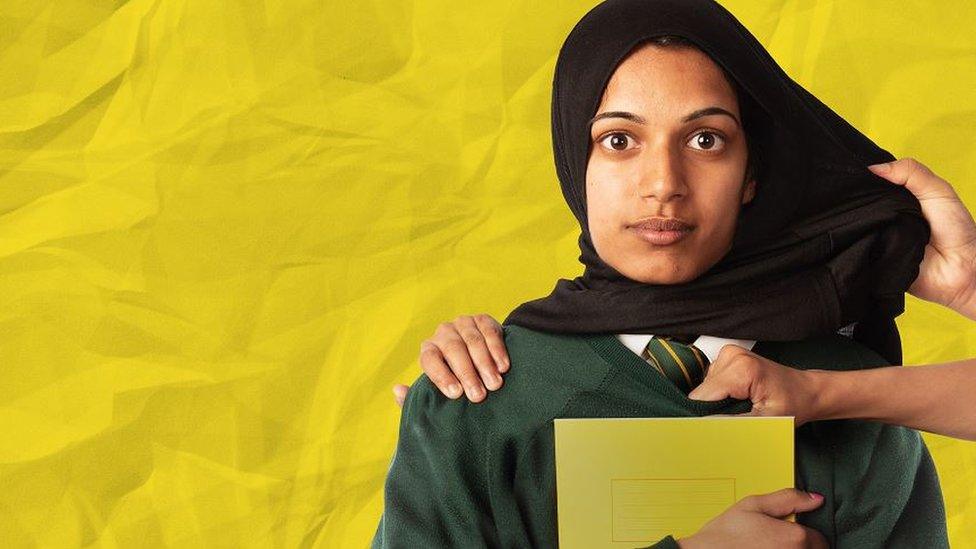
The play aims to reveal the impact and aftermath of the Trojan Horse case
Monks said the "time was right" for people to talk about Trojan Horse.
"In general people were generous and open with their stories, but there was a lot of nervousness," she said.
"It made me realise how much people's lives have been ruined - from all sides of the coin really."
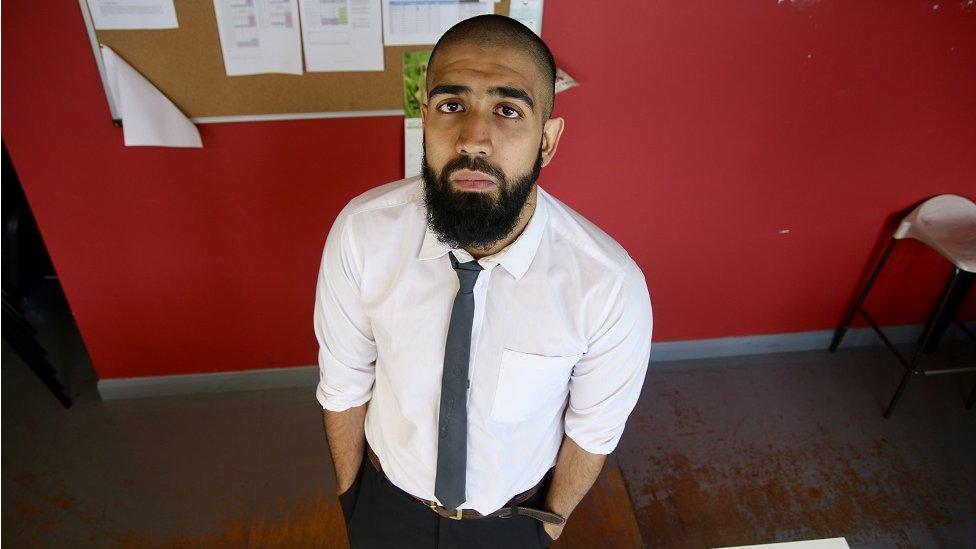
Maanuv Thiara plays Inam, one of five main characters in Trojan Horse
"Many of these people who were branded extremist have suffered serious long-term health issues", she said, adding they were left in "limbo" as inquiries were "dragged out" for more than two years.
Monks hopes the play can lead to more openness and discussion about subjects such as Islam and Britishness and how religion should feature in schools.
"There are sometimes clashes of ideas but a fear of talking about them has shut down the debate so things remain unresolved," she said.
Trojan Horse opens on Thursday at the Blue Elephant, Camberwell, London, before moving to the Edinburgh Festival Fringe.
- Published2 January 2018
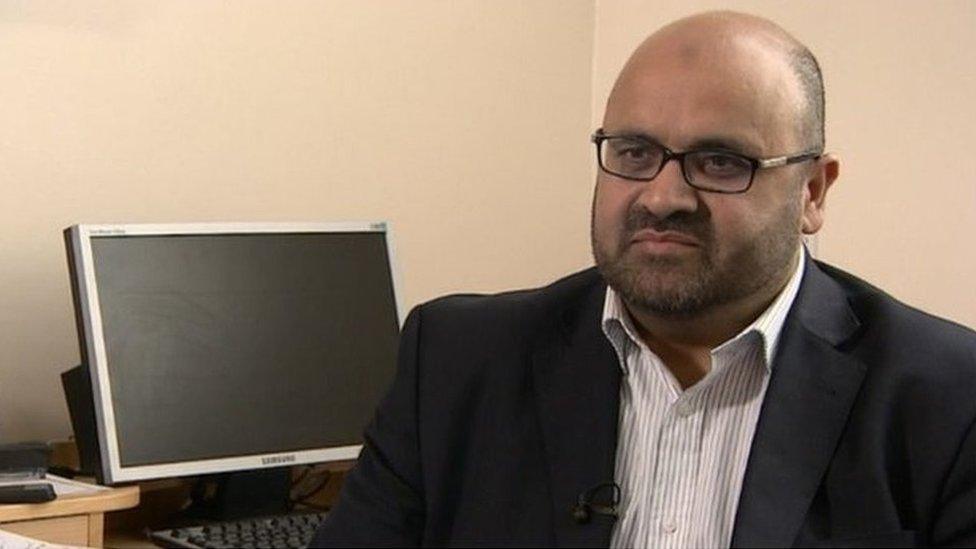
- Published30 May 2017
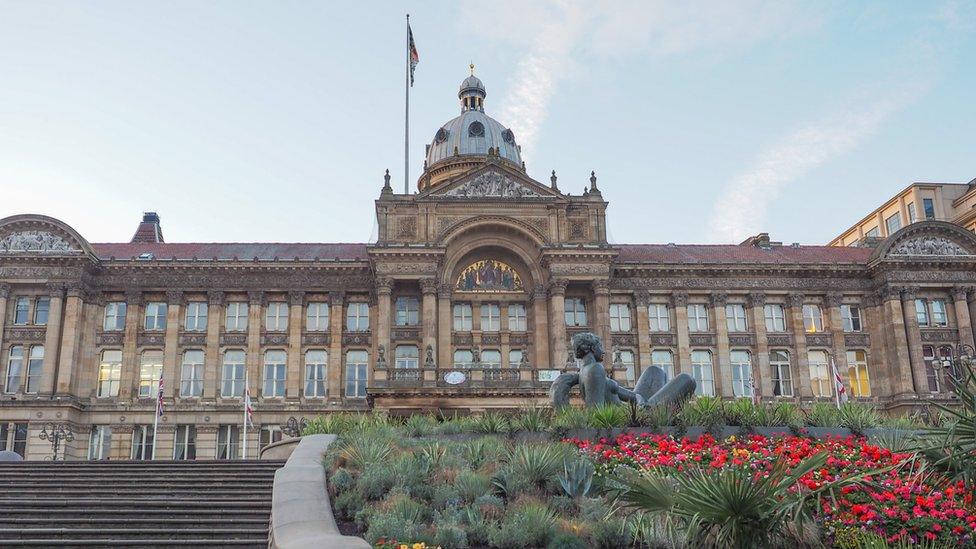
- Published4 January 2017

- Published9 June 2014